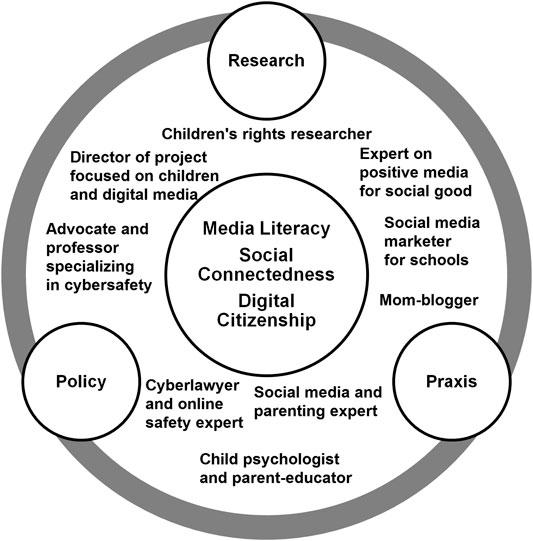Let kids explore the great outdoors
The pandemic has adversely affected the physical and mental health of children. At an age when they should be exploring the outdoors with their peers, they are confined to their houses. Parents’ must ensure that their children follow all coronavirus protocols such as wearing a mask, and sanitising their hands, and allow them to play outside. Going out and playing in the sun is crucial for the development of a child. Restricting children to their houses is sure to cause psychological and physical complications later in life.
Col TBS Bedi (Retd), Mohali
Reopening schools, a risk worth taking
The third wave of the pandemic, which has been propelled by the highly transmissible Omicron variant of the virus, has pushed reopening of schools to a later date. However, though the new strain spreads quickly, it is not believed to be as deadly as the Delta variant, especially among children, the authorities should rethink their decision. Cooped up indoors, glued to screens, and separated from their friends, children are experiencing problems such as anxiety. For the betterment of our children’s mental and physical health, reopening schools may be a risk worth taking, as has been done in Mumbai.
SC Luthra, Chandigarh
Cultivate a new hobby
Social isolation, anxiety and uncertainty about the future is common among teenagers, and this was exacerbated during the pandemic. An optimistic approach to life is a must for adapting to the new normal. Teenagers want to be heard and acknowledged, they need their space to listen to music, and hang out with friends, even if virtually. With free time on their hands, they could pick up a new hobby such as writing.
Abhishek Kumar, Chandigarh
Stick to a routine
It can be challenging to identify the emotional needs of a child at the best of time, and building a healthy routine is crucial for managing children’s emotions and build resilience during these challenging times. Rewards and privileges can be used to reinforce good behaviour, while the ‘time-out technique’ can be used to punish undesirable behaviour. However, parents should steer clear of corporal punishment. Differences may develop between parents and wards due to lack of communication. Parents’ expectations should be conveyed clearly, especially to older children.
Dr Damanjit Kaur, Chandigarh
Play board games as a family
Screen time should be regulated, as it is impossible to know the kind of content being consumed by kids these days. It is common knowledge that video games can be addictive,a and violent games often have an adverse effect on a child’s psyche. Parents should encourage their kids to explore a life outside their iPhones and iPads. The family can play board games or do gardening together. Board games and gardening can facilitate family time, without screens.
Gurnoor Grewal, Chandigarh
Spend quality time with each kid
Children rely on their parents for safety, both physical and emotional. Reassuring children that their parents are there with them, no matter what, can go a long way. Even with families stuck at home together, set aside individual time with each of your children. You can cook or read together, or play a game. Parents should choose the time, and the child should choose the activity. Just 10-20 minutes of parents’ undivided attention, even once every few days, will go a long way. Parents should remember to keep their phones on silent at this time.
Vineet Gandhi, Chandigarh
Spare a thought for the underprivileged
The United Nations International Children’s Emergency Fund (UNICEF) has flagged the insurmountable loss of education due to closure of schools. In developing countries, 70% of 10 year-olds are unable to read or understand simple text, up from 53% before the pandemic. The poor man’s child was disproportionately affected during the pandemic. Lakhs of children dropped out from schools because of meagre family incomes. Worryingly, they missed mid-day meals, which led to an uptick in malnutrition. It is imperative that government, educational institutions and the civil society to help children make up for the lost years.
Usha Verma, Chandigarh
Out with online, and in with offline
Online classes lack effective feedback mechanisms to ensure proper learning, and only a few lucky people can access it. Many students are unable to access online education. The government still has a long way to go to bridge the digital divide between socioeconomic classes. Educated and mentally fit children are essential for the future of India. Thus, the government should seriously consider re-opening schools in a phased manner so as to prevent further damage to the mental health of children.
Anil Kumar Yadav, Chandigarh

Prioritise mental health
The best course of action in these uncertain times is be to empower the youth and help them become resilient individuals. Academic institutions must ensure mandatory training in psychological first aid and suicide gate keeping.The goal here is to build a peer supported caring culture. Institutions and governments need to make mental health an agenda at leadership level. It is our responsibility as a community to protect our youth, and to be there for them in their toughest times.
Vijay Malia, Chandigarh
Reach out to kids
Children’s relationship with their parents can be a determining factor in their mental health. If parents notice a change in their wards’ behaviour, they should try to spend more time with their kids and try to find out what is going on in their life, as asking point blank may not always do the trick. Look for signs of distress and read up about mental health. Dinner is a good time to bond with children. As children are always busy on their devices these days, it is good to have a ‘no-phone’ policy during dinner.
Sumesh Kumar, Mohali
Set an example for kids
The pressure of keep kids sane during the pandemic, while juggling 20 other tasks, can be quite overwhelming for parents. However, the long-term effect of the pandemic on children will depend on parenting strategies during these strange times. Every parent must strive to be as positive as they can, and be a role model for their children. Spend as much time as possible with them, and give them time to interact with their friends through any medium, be it virtual games or video calls.
Sanjay Chopra, Mohali
Authorities must step in
Loss of lives, loss of businesses and employment, and closure of educational institutions has taken a toll on everyone. Children are simply victims of these unprecedented circumstances. Authorities must step in to ensure that their education does not suffer. Orphaned children should either be adopted by NGOs, or sent to orphanages. In rural areas, social welfare organisations should guide them. In some unfortunate cases, mid-day meal is sometimes the only meal, a child has. With the closure of schools, children are deprived of this nutrition. Government should provide parents with cash-transfers of the amount equivalent to the value of a mid-day meal.
Kidar Nath Sharma, via email
Don’t fear the shrink
Emotional and behavioural changes in children are to be expected during a pandemic. Being supportive, caring and showing empathy towards children will prove to be helpful. If a child shows an ongoing pattern of emotional or behavioural distress—like nightmares, anxiety, increased aggression, or self-harm then, parents’ should not hesitate to seek professional help.
Prabhjot Nagal, Zirakpur
Do not add to kids’ fears
The Covid pandemic has been devastating for the physical and psychological health of everyone. Fear of Covid, whether misplaced or valid, is spread by those in power. Kids are much better cared for in modern times. They enjoy good health, with ample food and an advanced gym culture. Hence, we should desist from spreading ‘undeserved’ Covid terror among children. They should not be psychologically distressed with unnecessary fears.
MPS Chadha, Mohali
Check kids’ internet usage
Children are the future of our country. For India to grow, we need healthy children with sound minds. The coronavirus pandemic has stopped everyday development of children in its tracks. They are using the internet without any check, which may have a negative impact on their growth. The government should allow schools and playing grounds to run at 50% of the capacity, so that the day-to-day grooming is not halted.
Aarti Verma, Panchkula
Addiction to screens, a real menace
Using smartphones and laptops is the only option with children during the pandemic. Technology giants call their customers ‘users’, and are the only industry to do so, except pharmaceutical giants. Screens work like a slow poison for our children. Kids will play addictive video games all day, rather than playing outside.
Avinash Goyal, Chandigarh
Let the kids out
Children are under stress due to the prolonged closure of schools, online classes and staying indoors the whole day. Lack of social interaction and physical activity is making children irritated and quarrelsome. Compare the Covid data, and one will find that the chances of school going children getting seriously sick due to Covid is negligible. Therefore schools should be allowed to resume.
Subhash Chugh, via email
No substitute for brick-and-mortar classroom
To ensure children’s wellbeing of children, it is prudent to let them go back to school, so they can lead a normal life. Though Covid poses little risk to children, most students have been away from schools for almost two years. There are grave concerns about the increasing body mass index, prolonged screen time, and psychological stress among children and adolescents. Schools have been open in several countries without Covid norms, and children have been safely attending in-person classes. Virtual classes can never supplant a brick-and-mortar classroom. Here, every time there is a slight surge in cases, authorities hasten to shut down schools.
Varun Das, via email
Help kids kick gaming addiction
With children spending prolonged hours in front of the computer, be it for classes or online gaming, parents must regulate their screen time and encourage them to take part in physical activities. Parents must also sensitise their wards about gaming addiction, its symptoms, and ramifications.
Professor Rajat Sandhir, Mohali
Help children make sense of the world
Now, more than ever, we need to pay special attention to the mental health and wellbeing of children. While restrictions have started to ease, the virus has caused cataclysmic changes to everyday life. Adolescents, in particular, have had to grapple with disruptions in their school schedule and their family’s financial situation, which has caused them to experience strong emotions such as anger, frustration, anxiety, and confusion. Parents must give them space to talk about their feelings, and have age-appropriate conversations with them, which will help them make them make sense of the world. Try to set a creative routine, including playing, reading stories, exercising, painting, drawing, or planting, and limit their exposure to television, computer, iPad, phones and social media platforms.
Surbhi Rawat, via email
Teach kids to avoid self criticism
To ensure that children do not fall victim to psychological problems, children should be taught to avoid self-criticism, make time for their hobbies and take up new projects. They should also be told to focus on their physical well-being by exercising, and have nutritious meals, which will improve their mental health. People with strong familial or social connections are generally healthier than those who lack a support network. Parents should play indoor games with their kids, and have honest conversations with them.
Ishita Nara, via email
Do not vent out on kids
Online teaching is no match for classroom teaching,and matters are worse for those without access to smartphones, or good internet connectivity. With children couped up at home with working parents, emotions run high and the children become the target of their emotional pileup. Parents need to play the role of peers and friends rather than channelising their own grievances through their children. Children have missed out not only on the concept learning but emotional and behavioural skills which they would otherwise absorb through group activities. It is time that we restarted schools in a phased manner with children attending classes on alternate days.
Premila Verma, Chandigarh
Meditation, social service is the key
Parents can help children stay emotionally strong during the pandemic by helping them stay positive. Meditation and spiritual education will also go along way, as will reading biographies of the greats, and teaching them about the sacrifices of the sahibzadas. Youngsters should be motivated to do good deeds,and social service. Encourage them to participate in online debates, and take up hobbies.
Navjot Singh Chhabra , Mohali
Onus on admin
The administration, which does not seem to have learnt lessons from experts’ advisories , needs to come out of its cosy confines and initiate preventive measures to ensure that children are protected against the onslaught of the new variant. It must also ensure that children do not fall victims to psychological, mental and physical illness for life. The dispensation should rise to the occasion and take on the alarming situation head-on so that no life is lost due to lack of medical care and combative infrastructure.
Ramesh K Dhiman, Chandigarh
Lend a patient ear
Parents should spend quality time with their wards, and lend a patient ear to all their concerns. They must be kept physically active so that they do not succumb to boredom and monotony. They should be taken out for a change of scenary from time to time, and they should be encouraged to take up yoga, meditation and physical exercise to keep them physically, mentally and emotionally fit.
Abhilasha Gupta, Mohali
Provide a change of scenary
We must take our children outside for an hour or two. Taking them to the park, playing games with them and walking to a nearby market with them will help. Good time management can also make the long days less boring for them.
Shifali Sehra, Chandigarh
Have a heart-to heart
It is very important to talk to children. Parents must take out time during the day to communicate with their child. Frequent outings will also help keep their spirits buoyed.
Kamal Sidhu, Chandigarh
While advancement in technology has helped students continue their academic journey, it has also increased their dependency on technology for every other thing, which is indicative of a vacuum in their lives. It is imperative that elders counsel and comfort children, and also engage them in things that help identify their inner and outer strengths. While many children lost their parents and are struggling to resettle, there are children who have established strong bond with their devices and laptops. In both the cases, we need to make up for the void left in their minds and hearts. Compassion, love, and affection can help guardians reach out to their wards.
Shikha Sondhi, via email
Parents should brush up their tech skills
To boost children’s morale, parents should get out of their comfort zone and work on their digital literacy. As the class room hours are fixed, children should be given smartphones, and laptops for a limited period of time. Parents should monitor their work tactfully, and spend time with children. Families should get together and play an indoor game, or watch television. The idea is to keep communication with their children alive and friendly.
Sqn Ldr Manjit Singh Johar (Retd), Chandigarh
Rope in counsellors
We can save children from the ill effects of the coronavirus by sticking to the time-tested age-old adage, which says prevention is better than cure. We must set an example for our children by following all necessary precautions to ensure that the virus does not spread. A counsellor should be roped in to guide students, teachers, and parents in these turbulent times. NGOs can be engaged to counsel children about the psychological problems arising due to the pandemic.
AK Sharma, Chandigarh
Reader of the week
Mind your kids’ habits
With educational institutions switching to the online mode during the pandemic, parents had little option but to allow their children to spend extended hours on their phones and laptops. This is causing a lot of health and psychological issues among children. As such parents must spend time with their children, play with them, and keep a watch on their habits.
Jasleen Kaur, Chandigarh
Experts
Provide a healthy support system
We must create a healthy support system for children to nurture their psychological and holistic well-being. We need to engage children in mindful activities
Navjot Kaur, director, social welfare, Chandigarh
Encourage physical activity
Children’s screen time should be limited, and physical activities should be encouraged. Communication between children and parents is key.
Dr Priti Arun, head, department of psychiatry, Govt Medical College and Hospital, Sector 32
Counselling a must
Students have been given the numbers of teachers and counsellors. We also keep a tab on complaints received and accordingly help children.
Sumit Sharma, counsellor, Govt Model Senior Secondary School, Sector 22
Empathy is key
Parents must empathise with their children, be patient with them, and trust them. Parents’ support will go a long way in helping them.
Gulshan Kaur, principal, Bhavan Vidyalaya, Sector 15, Panchkula
Parents must remain watchful
Parents must keep an eye on their wards’ activities, and guide them. Being involved in their lives is the only solution.
Suman Sumi, parent, Sector 14, Chandigarh
SHARE THIS ARTICLE ON








